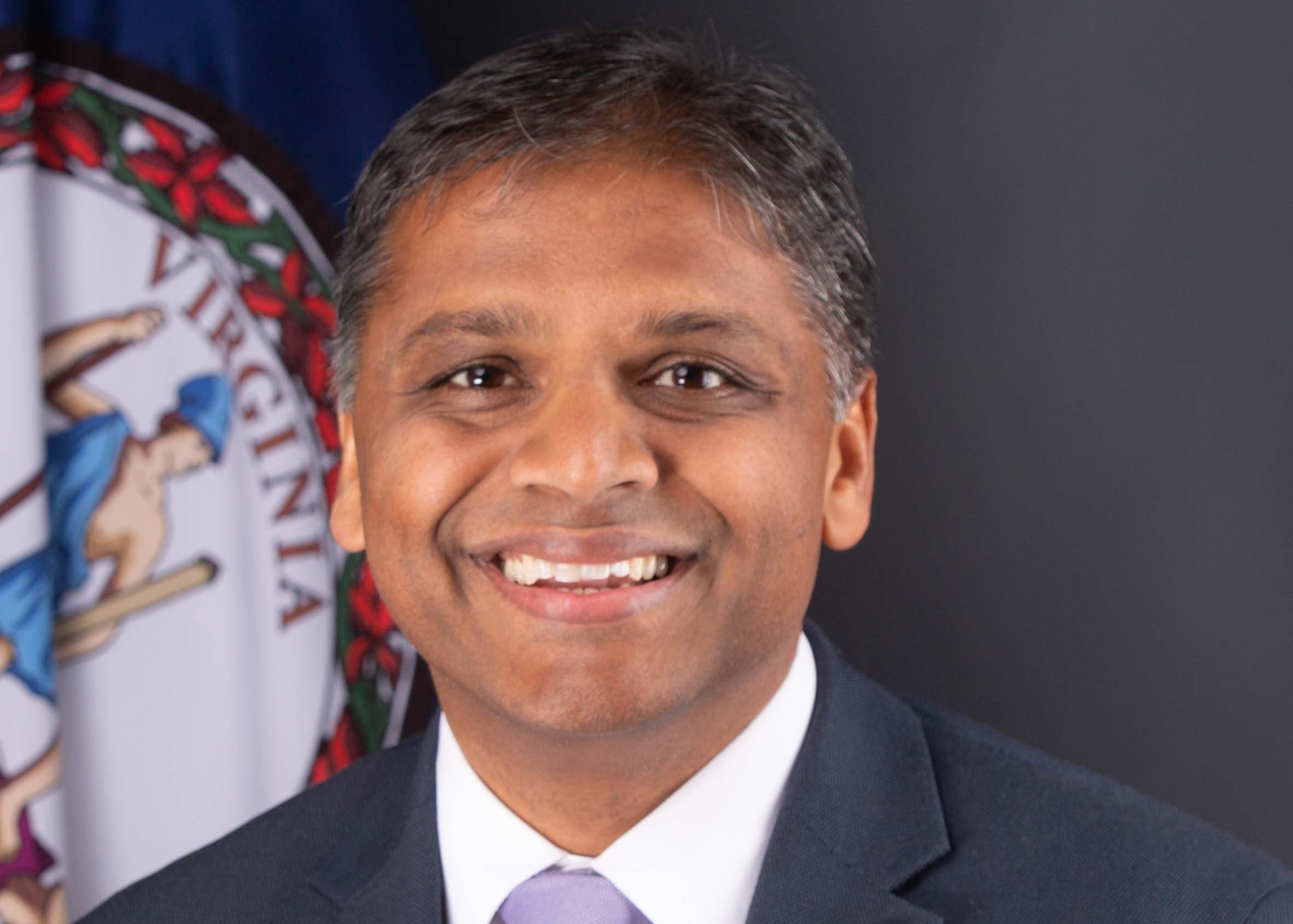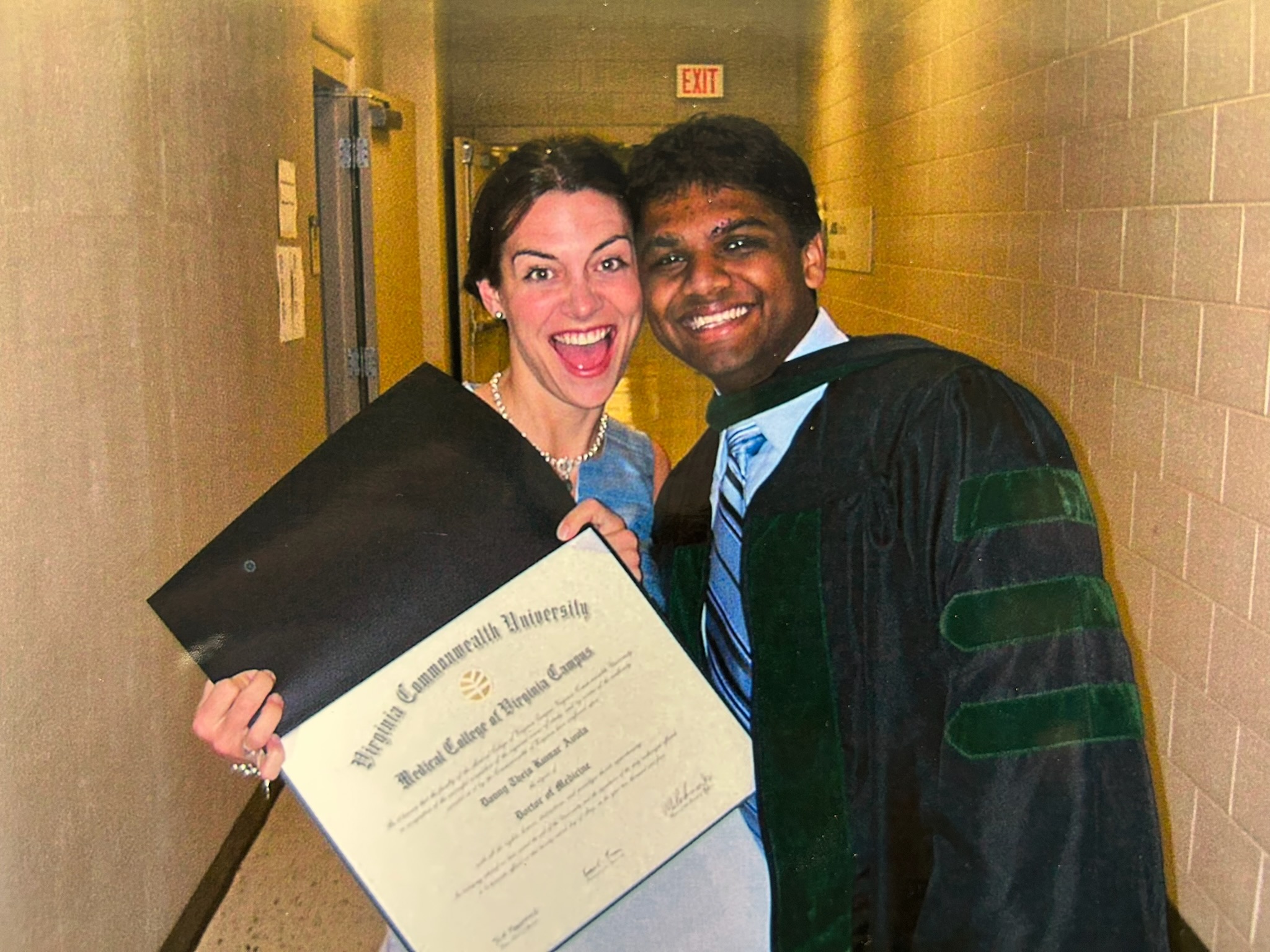The doctor is in (office)
Danny Avula, M’04, H’07, was elected mayor of the City of Richmond in November. The new position comes after years of serving as public health director for the Richmond City and Henrico County Health Districts, Virginia’s COVID-19 vaccination czar and, most recently, head of the state’s Department of Social Services.

Danny Avula, M’04, H’07
This story was published in the spring 2025 issue of 12th & Marshall. You can find the current and past issues online.
As the pediatrician and preventive medicine physician settles into his new role at City Hall, we sat down with the capital city’s 81st mayor — and first immigrant to serve in the role — to discuss his journey from clinician to politician.
Why would a pediatrician go into politics?
It was really driven by a desire to create community across racial and socioeconomic alliances. That also was the impetus for our family moving to the Church Hill neighborhood back in 2004. The impact of living in deep community with people who are coming from a lot of different backgrounds and helping me to understand, navigating poverty through their eyes, has shaped everything about the way my career has moved.
I very vividly remember conversations with kids and their families, trying to advise on nutrition and exercise, and families saying, ‘I’m just trying to keep a roof over my head.’ So that clinical experience with families living in poverty just created opportunities for me to more deeply understand what they were struggling with — and how on a community level, on a population level, where we may need to act through policy and through programs to actually scale that impact.
Do you see this as a logical broadening of your practice?
For sure. What drew me to medicine was the opportunity to participate in the healing of illness. And in the traditional, medical, sense, that is in a one-on-one relationship between a doctor and a patient. As I took a step to the practice of public health, you’re widening the lens. Your patient now is a neighborhood or a community or a city. And now taking yet another step and widening that
lens even more because the treatments of the things that are ailing society are the availability of affordable, safe and stable housing; access to nutritious foods; and the opportunity to earn a living wage. These are the things that people need to be healthy in society, and the transition from being public health director to mayor has given me even more ability to influence and create that opportunity and ultimately work toward the healing of the city.
How have your medical school classmates responded to your new role?
It’s been fun. A number of them supported me on the campaign. I have a text thread with about 20 of my classmates. They’ll send notes of encouragement and certainly during the water crisis they did. I think they’re really proud because all of them have a connection to the city. It was such an important part of all of our lives, and so they’ve been really supportive and really encouraging. It’s meaningful in a way because we all love Richmond so much.
What in your medical training do you rely upon to be a better mayor?
We learn in medical school to make decisions based on evidence. I have applied that at every stage of my career. And you know, that evidence isn’t always beautifully run, randomized control trials on a particular drug. But instead looking at what things are working around the country and looking to that evidence space to help inform how we’re going to contextualize solutions here in Richmond.
There’s no doubt that my training as a pediatrician, being thoughtful about bedside manner, the importance of being a calm and steady and reassuring voice in times of crisis. Most of my clinical career has been in hospital pediatrics, and for families when their kid is in the hospital, that’s as nerve-wracking and anxiety-filled a time as possible. Having spent 15 years on conveying sometimes really difficult information in ways that are clear, and as reassuring as possible, has helped me find my voice as a public official and now as
mayor of the city.
What lessons did you learn from the COVID era about handling a crisis (as a public health director and state vaccine czar), and how do
you apply them in your current job?
Lesson one is bringing the right people to the problem-solving table. This wasn’t something that one agency could do on its own, and it really needed the full force of not just state government but bringing experts in from local government partners with the private sector.
Second was the importance of communication and the rhythm of daily or weekly responding to media, taking the opportunities to report out with as much transparency as possible to try to convey, ‘Here’s what we know, here’s what we don’t know.’ That engenders trust.
Now several months into office, what were you not prepared for and what has surprised you?
I don’t think I was prepared for the number of constituents and constituencies that exist in this job. So many people need so many different things to address their concerns. There is both a very finite bucket of resources and a finite lane of policy solutions. You can’t make everybody happy and so much of this job is to as effectively as possible diagnose the issues and then propose a treatment that not everybody’s going to agree with. To do that, every single day, is emotional, weighty work.
Are the city’s problems harder to diagnose or to treat?
The treatment is often more difficult because the treatments aren’t as easy as writing a prescription, right? The treatments are often complicated policy solutions or leveraging investments to create new programs or rewriting long-held community narratives. There’s a lot of difficult behavior change work that’s required in the treatment side of this.
Do you have further political aspirations beyond Richmond?
Oh gosh – I definitely do not. I barely had these political aspirations! I would love to be here for eight years, but I’m happy to find other things to do after that.
I took this job because I love this city. This is a way that I can really contribute to a place that has given me so much — and that I want to be in for years to come.

Danny Avula M’04, H’07 at his medical school graduation.
His MCV Campus favorites
- Food cart: The Indian Cart
- Spot on Campus: Comfy chairs in the Medical Sciences Building
- Professor: Linda Costanzo, Ph.D.
- Class: Anatomy